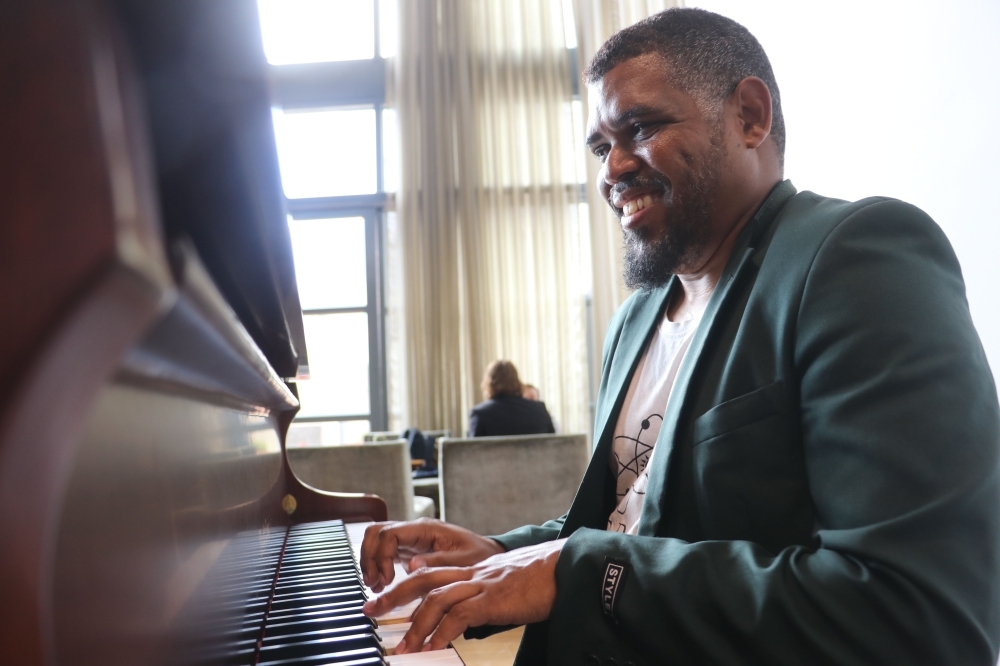Harry lost without his piano
After he made enough money for a portable electronic piano and bought it, doors opened for the visually impaired piano player Harry Rheeder.“I played for the European Union and they asked me to play their 74th birthday song ‘Better Tomorrow’ and I was part of the video. This earned me enough money to buy a much-needed piano. In my type of work, everything depends on good sound. I bought an electronic piano in Tsumeb in 2020 because the sound was excellent and the price suited my pocket. However, I didn't know that Casio was the wrong brand to buy."
Sadly, Harry’s portable electric piano is now broken because no one in Namibia could service the piano and thus it cannot be repaired.
"Apparently the brand is the problem and I was advised to buy a more well-known one like Yamaha. I'm trying to save money, but with a broken piano, I can't play all the gigs. I play at the Hilton every Tuesday, Wednesday and Thursday from 17:00 to 19:00. On Friday nights I play at Utopia in Klein Windhoek, on Saturday nights myself and two men play there and on Sunday nights together with a whole group. However, I also have to do other gigs."
Harry tells how he played for the First Lady Foundation on a cheap piano and how the sound was very poor. “I was embarrassed about it. I would really appreciate it if people could help me so that I can do gigs on my own again.”
He shares that the best moment in his life was when he was still playing in the Gustav Voigts centre.
"I live far away from the bus stop and I took my five-year-old daughter Divine with me that day. I had her on one hand and the piano in the other. It was difficult and we had to ask people to help us to the taxi. When we finally got to the centre and I set up and started playing, she stood in front of me and saw people giving money. She took out her recorder and began to play and dance. It was incredible."
Harry was born in Usakos with retinitis pigmentosa – the hereditary, progressive degeneration of the retina that eventually causes blindness. When he was nine months old his mother took him to a doctor and he was diagnosed with this visual impairment.
"In those years there was only one school for blind children in the North and one in South Africa. Both schools were too far from Usakos and my parents could not afford to send me there." But when Windhoek's school for the visually impaired opened and Rheeder was one of the first pupils to enrol there at the age of nine.
According to Harry, he has always been interested in music and started playing a keyboard at home one holiday. After the holidays, he told the school that he would like to learn how to play the instrument. A teacher then taught the 10-year-old Harry to play the piano.
He never learned to read notes.
"I listen to songs on the radio and then I play them. I practice it until it sounds like the song on the radio."



